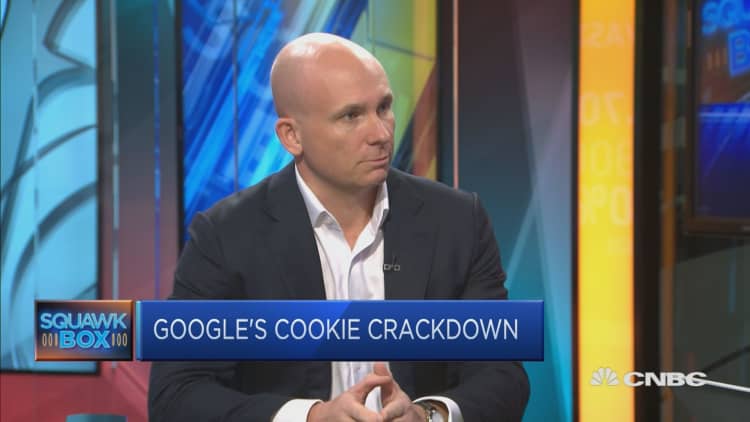Major trade groups representing marketers and advertising agencies are criticizing Google's announcement this week that it will end third-party cookie support in its Chrome browser within two years.
This change will disrupt part of the web's economic infrastructure and "may choke off the economic oxygen from advertising that startups and emerging companies need to survive," the advertiser groups said in a statement.
The statement was attributed to Dan Jaffe, group EVP of government relations at the Association of National Advertisers, which represents companies including Procter & Gamble, Coca-Cola, Microsoft and Apple, and to Dick O'Brien, EVP of government relations at the American Association of Advertising Agencies, which represents major ad agencies.
Cookies are small pieces of code that websites deliver to a visitor's browser and that stick around as the person visits other sites. They can be used to track users across multiple sites and can be used to target ads and see how they perform.
Google said it will effectively kill off third-party cookies on Chrome once it has figured out how to address the "needs of users, publishers, and advertisers" and it has developed tools to "mitigate workarounds." Chrome is the most popular web browser in the world, with about 69% global market share as of September 2019, according to Statista.
The company said it's working on initiatives that would let online advertising continue in a more privacy-conscious way, but it's unclear exactly what that means.
Jaffe and O'Brien wrote that the advertiser groups intend to work with industry players, policymakers and Google itself to ensure "effective and competitive alternatives" before Google ends third-party cookie support.
"In the interim, we strongly urge Google to publicly and quickly commit to not imposing this moratorium on third party cookies until effective and meaningful alternatives are available," they wrote.
These groups have also been among groups opposing California's new privacy law. The groups cited concerns about negative consequences that proposed regulations could create for consumers and businesses.
Follow @CNBCtech on Twitter for the latest tech and advertising industry news.



